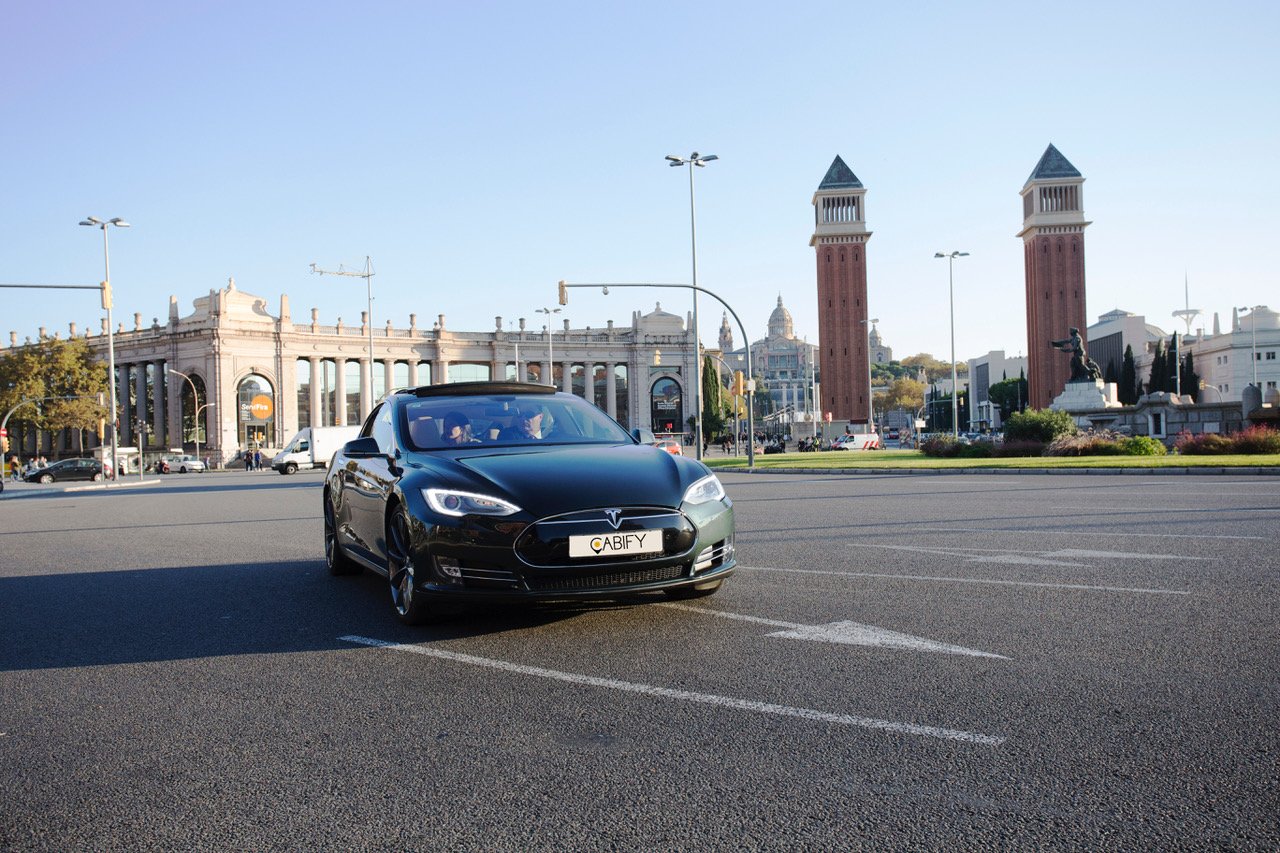
At a moment when the collaborative economy is experiencing commotion with the Uber hearing in the European Court of Justice and the war between Blablacar and the Madrid Community, another startup in the sector arrives on Thursday in Barcelona with another transport model. We are talking about Cabify, the Spanish company that began operating in 2011 with a turnover of 850,000 euros and that has grown exponentially, ending 2015 having multiplied its turnover by 9 and expecting to end this year with more than 100 million euros and a presence in 13 different countries.
Behind it is also the new Barça sponsor, Rakuten. They joined as a minority shareholder with an investment of 100 million dollars, which increased the company's valuation to 300 million euros. And that, in the opinion of Barcelona General Manager, Oriol Sanleandro, is what helped them in April to close an investment round worth 106 million euros, the largest a startup has ever raised so far, led by Japanese e-commerce.
Given the exponential growth, Barcelona is a must on the list of cities. They arrive with an investment of 6 million euros, a fleet of 50 vehicles and "convinced that the service will work," points out Sanleandro, who believes it will not take too long to match the almost 300 Cabify vehicles already circulating around the Spanish capital.
Improving a traditional service
The founder and CEO is from Madrid, Juan de Antonio, who studied engineering at the Universidad Politécnica de Madrid and an MBA at Stanford. It was during a period working in Latin America that he saw "many areas to improve the service, above all in fares, safety, comfort and savings," says the General Manager. Therefore, in Spain, the project was started by two partners, former university classmates, to respond to some very clear needs.
Six weeks after starting, the mobile app already has 200,000 downloads, a figure that attracted enough investors to show that such a 'simple' idea had found a good niche in the market both in Madrid and in Latin American countries.
The main doubt: is it legal?
"No, Cabify does not operate outside the law." This is Sanleandro's answer to the doubts about the service, which has understandably been questioned considering the controversies over Uber and Blablacar. "We do not invest in either cars or drivers," he says. "We are sort of transport network that puts users in touch who want to be driven by colleagues or partners with a licence for rental vehicles with a driver ( VTC)."
Despite being exempt from the penalties given out to the other two companies, the General Manager recognises a need to "regulate the offer, so that they can operate within the law in order to dispel the distrust." He insists that there is a sort of "taboo" about the subject and that they have come across certain reservations in the cities they begin operating in: "It is not until they understand how we work do they accept us. At the beginning there is rejection because they think about Uber and Blablacar."
Adapting to all sort of clients
As one of the company's maxims is offering a quality service adapted to the client, there are four different fees: Lite, saloons and mid-range cars; Executive, top of the range; Group, with vans; and electric vehicles. The first category make up the main part of the business. Out of the fee that the driver charges for the trip, the company retains a percentage in order to monetise the service.
They are open to individual passengers, groups and all types of services. At the same time, it is the corporate segment that generates the most business. "We work with a lot of companies in Madrid; it is a sector we put a lot of focus on because we cover 100% of what they ask for and more," he points out, "and it was precisely this sphere we were asked about most when it was known we would come to Barcelona." He recognises that it is a more costly sector: "there is high investment to develop the product, they want specific things and it requires time," but the benefit is: "Loyalty and having a direct link with the private sector."
That is why the main objective is to target clients they already have in other places and who also want them in the Catalan capital, the following step is to consolidate and find new targets.
However, to achieve excellence in the service is not only about finding the best transport companies; the employees also need training. In this area, Cabify trains drivers according to its own protocol: "They have to be polite, keep a specific temperature in the car, not talk about football or politics, have Wi-Fi, and we also propose that they use Waze to know the state of traffic in real time. They are some examples of the standards that the clients demand and that are necessary to introduce added value.